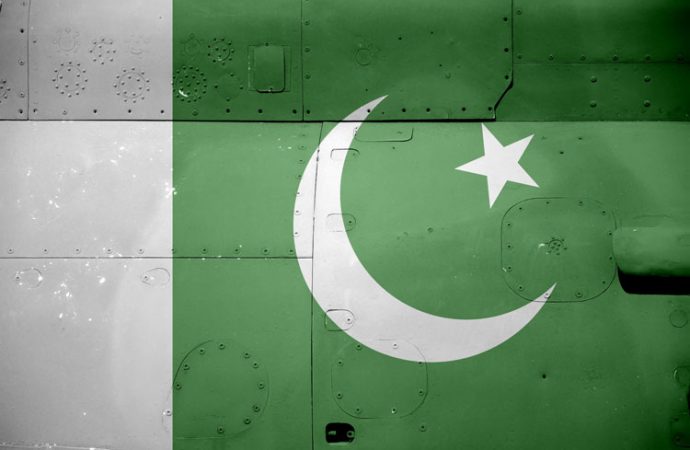Author Recent Posts Areeba Aftab Latest posts by Areeba Aftab (see all) President Raisi’s Pakistan Visit and Its Possible Outcomes – May 16, 2024 Why is CPEC Security Crucial to its Stakeholders? – April 25, 2024 What Strategy Could be More Effective on Pakistan’s Western Borders: Cooperation or Operations? – April 16, 2024
The Iranian President’s visit to Pakistan on April 22, 2024, marks a strategic diplomatic move amid regional turmoil. The Housing and Works Minister and Pakistan’s Ambassador to Iran Mudassir Tipu greeted him upon arrival. The Irani President held meetings with Pakistani top officials including Prime Minister Shahbaz Sharif. He received a Guard of Honour. Pakistani authorities announced the renaming of 11th Avenue to Iran Avenue in Islamabad as a gesture of camaraderie. This visit marks the first by any head of state since the general elections on February 8. Iranian media claimed that President Zardari had extended the invitation, making it the first by an Iranian leader in eight years.
Earlier in January, Iran and Pakistan exchanged airstrikes but quickly normalised their ties. The visit occurred shortly after Iran and Israel attacked each other, raising concerns of escalation in the Middle East. The timing of the visit has drawn international attention, coinciding with the unfolding war in Gaza and the crisis in the Middle East. The official purpose of the trip was to discuss the current trade volume, which stands at 2 billion dollars. President Raisi deemed this amount unacceptable between neighbouring countries. Vows were made to raise the trade volume to more than 10 billion dollars and to establish additional border markets. Both countries acknowledged the challenges in cooperation but pledged to overcome them.
The countries delved into discussions on religious and cultural exchange, border and regional security challenges, improving collaboration on counter-terrorism efforts, enhancing trade and investment volume, addressing the energy crisis, and strengthening people-to-people ties. The Irani President visited Islamabad, Lahore and Karachi. He admired the resilience of Pakistanis and felt at home paying respect at Iqbal’s mausoleum. The Irani President’s affection towards the people of Pakistan was evident when he expressed his desire to address a public gathering which could not be made possible due to several reasons. The University of Karachi awarded him an honorary doctorate.
This trip holds great significance. The key question is: why did President Ebrahim visit Pakistan during such sensitive times, with the Middle East situation deteriorating? Iran is engaged in proxy conflicts with Israel, targeting sites in Syria and Iraq, and maintaining high alert for potential threats. It appears that countries are seeking alliances as global conflicts intensify. Like Israel’s active Western support, Iran seeks strong ties with its neighbours. Pakistan, as a major Islamic country with a population of 235.8 million, is the only Islamic nuclear power and the seventh strongest military, cannot be ignored. Given its similar religious and cultural affiliations, Pakistan could support Iran without much effort.
A few months ago, the Saudi foreign minister visited Pakistan and Pakistani high officials met Mohammad Bin Salman in Saudi Arabia. Additionally, Saudi Arabia provided financial assistance to Pakistan. Middle Eastern Muslim states are becoming more active in garnering support from other states ensuring any future stance in regards to America or Israel in the Gaza War receives backing and is well-received. Pakistan’s geo-strategic location, with borders shared with China, Afghanistan, and Iran and its proximity to Russia, makes it an important player in
the region. Despite Pakistan’s crumbling economy and internal political instability, both Saudia Arabia and Iran aim to ensure Pakistan’s alignment with their interests.
The Irani President sought to utilise diplomatic channels to convey that Iran does not intent to alienate Pakistan. This visit signifies an improvement and renewal of relations between the two countries. Iran desires to mend ties after border strikes earlier this year, during Pakistan’s interim government. Some anticipated this visit as soon as Pakistan would have its elected government after the general elections, following reconciliatory efforts from Iran. Iran has conveyed its desire for Pakistan’s encouragement and this highlights the supporting role of Pakistan in the Gaza War. President Raisi emphasized the importance of not fighting with each other and standing united.
Another important aspect that came to light with this visit was the Iran-Pakistan Gas Pipeline project. Pakistan faces an 18 billion dollar fine if it fails to complete its side of the project. Iran has previously taken the matter to the International Court, but upon Pakistan’s request, it has extended the deadline. Pakistan has been granted an additional four months to complete its part. The Pakistani authorities have approved the laying of 81 kilometres of the pipeline. However, there are three major obstacles to the completion of the IP pipeline for Pakistan: pressure from America and the threat of sanctions, insufficient capital to fund the project, and the potential consequences, and a fine from Iran, if it fails to complete the project.
President Raisi also appreciated Pakistan’s stance on the Palestine-Israel issue. Prime Minister Shahbaz Sharif condemned Israel in the strongest terms. Both countries agreed to enhance religious tourism and establish border markets. The US reacted immediately to Raisi’s visit by imposing sanctions on Pakistan’s ballistic missiles, targeting three Chinese companies and one Belarusian company that provide important equipment and apparatus for the missiles. Pakistan called this action disappointing, highlighting the challenges to its diplomacy and foreign policy. With the growing divide between the West and East and a shifting global order, Pakistan finds itself caught between the varying interests of the authoritative West and the evolving regional dynamics.
- President Raisi’s Pakistan Visit and Its Possible Outcomes - May 16, 2024
- Why is CPEC Security Crucial to its Stakeholders? - April 25, 2024
- What Strategy Could be More Effective on Pakistan’s Western Borders: Cooperation or Operations? - April 16, 2024





















Leave a Comment
Your email address will not be published. Required fields are marked with *